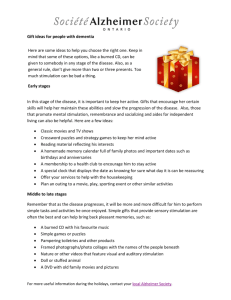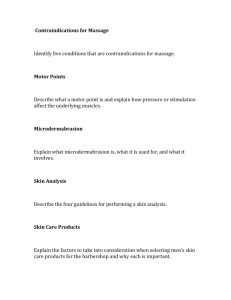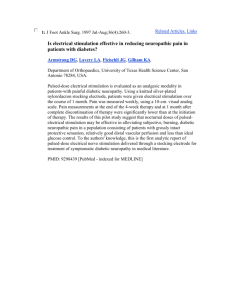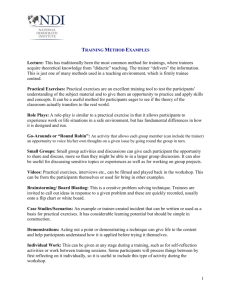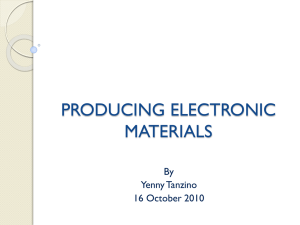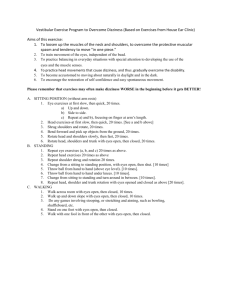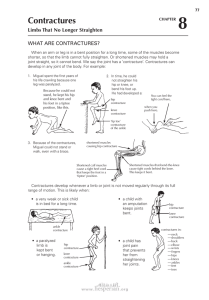IHSS therapy plan 7-16
advertisement
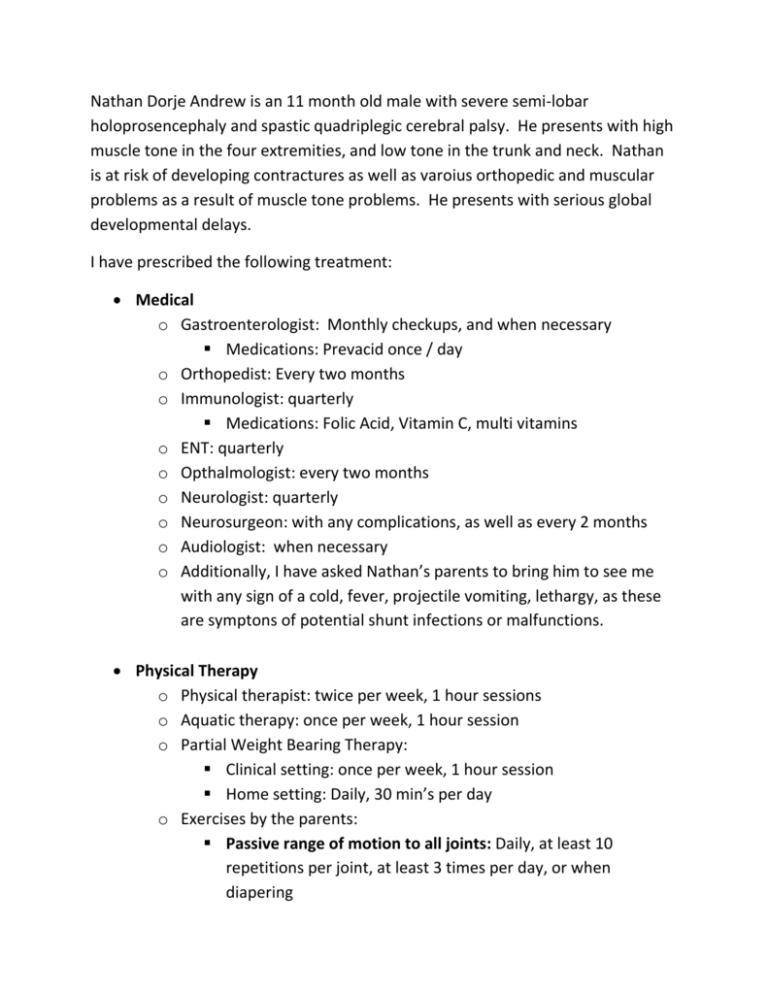
Nathan Dorje Andrew is an 11 month old male with severe semi-lobar holoprosencephaly and spastic quadriplegic cerebral palsy. He presents with high muscle tone in the four extremities, and low tone in the trunk and neck. Nathan is at risk of developing contractures as well as varoius orthopedic and muscular problems as a result of muscle tone problems. He presents with serious global developmental delays. I have prescribed the following treatment: Medical o Gastroenterologist: Monthly checkups, and when necessary Medications: Prevacid once / day o Orthopedist: Every two months o Immunologist: quarterly Medications: Folic Acid, Vitamin C, multi vitamins o ENT: quarterly o Opthalmologist: every two months o Neurologist: quarterly o Neurosurgeon: with any complications, as well as every 2 months o Audiologist: when necessary o Additionally, I have asked Nathan’s parents to bring him to see me with any sign of a cold, fever, projectile vomiting, lethargy, as these are symptons of potential shunt infections or malfunctions. Physical Therapy o Physical therapist: twice per week, 1 hour sessions o Aquatic therapy: once per week, 1 hour session o Partial Weight Bearing Therapy: Clinical setting: once per week, 1 hour session Home setting: Daily, 30 min’s per day o Exercises by the parents: Passive range of motion to all joints: Daily, at least 10 repetitions per joint, at least 3 times per day, or when diapering Stretching every joint of the body, shoulder, elbow, hands, to prevent contractures PNF patterns (diagonal patterns for legs and arms) Adductors Hamstrings Calf Age appropriate strengthening exercises: Daily, at least 30 minutes of intensive therapy Abdominals Back extensors Extremities Pectoralis Biceps Triceps Rhomboids Hamstrings Quad Rectus abdominus Standing program: Daily, 10 minutes 3 times per day Prone stander Positioning: Reccommended 1 hour per day on different positions or devices Hold by pelvis to control trunk Sitting Kneeling Stander Corner chair Upright head Prop sitting Therapeutic ball: Daily, 3-5 10 minute sessions Strengthening o Trunk o Abdominals o Back Side sitting Postural Control: Daily, 15 minutes per day Elicit balance reactions Transitioning for mobility: Daily, 45 minutes per day throughout the day Rolling from back to stomach, and stomack to back Prone to go up to his hands Rolling to the sides to come up into side sitting Kneeling Quadruped position (hands and knees) Occupational Therapy Oral motor exercises: Daily ,5-10 repetitions, whenever possible Gum massage Lip stretching Tongue lateralization exercises Tongue tip elevation exercises Mid-blade elevation exercises Jaw control exercise Fine motor coordination: Daily, 3 30 minute sessions Reaching activities Grasping activities Bimanual and bilateral activities Proprioceptive activities: Daily, 1 hour per day Vestibular stimulation such as swinging Rotary stimulation Weight bearing on arms Joint compressions Deep pressure Tactile stimulation Auditory Stimulation (sensory processing): Daily, 3 10 minute sessions Self-regulation Attention stimulation Adaptive Devices: Daily, 1 15 minute session Playing with switch activated toys Child development therapy: o Cognition: Daily, 1 hour per day Look from one object to another; held 1 foot from his chest, objects 6-8 inches apart, he will glance several times to look directly at each object Find a partially hidden object Continue a familiar activity by initiating movements Reach for a nearby object consistently Anticipate visually a slowly moving object; look to the other side for it to reappear o Language: Daily, 30 minutes per day Maintain focus and watch speaker’s eyes and mouth when spoken to Use eye gaze, body movements to initiate and maintain interaction with a person or object Wave or respond to bye-bye Respond to a simple request with a gesture, “Give mommy/daddy a kiss o Social: Daily, 1 hour per day Inspect his own hands Respond playfully to a mirror (smiles, laughs, pats, reaches toward his image) Enjoy songs; clapping his hands upon hearing a familiar song as, “pat-a-cake” Play “peek-a-boo” and remove a cloth from his face Vision Therapy o Tracking objects: Daily, 10 repetitions o Identifying colors and shapes on flash cards: Daily, 15 minutes Massage Therapy: Daily, 20 min’s in the morning, 20 min’s in the evening o Massage thighs, groin area, and feet to avoid contractures of muscles o Massage arms and hands This is an intensive program for a child so young but I see potential in him and with effort and stimulation his potential will be maximized.
